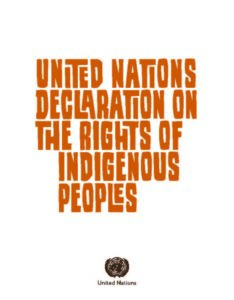Background
The Town of Gibsons is committed to advancing a “shared vision of reconciliation for both Indigenous and non-Indigenous communities in Canada, based on mutual respect” as described in the Truth and Reconciliation Commission of Canada (TRC): Calls to Action Report.
UNDRIP
On April 20, 2021, Council voted unanimously that the United Nations Declaration on the Rights of Indigenous Peoples (UNDRIP) be adopted and implemented, to be used as a framework for Indigenous reconciliation.
Proposed initiatives relate to recognizing the importance of First Nations in our community’s history and establishing a meaningful long-term and collaborative relationship with the Squamish Nation.
Read the related Staff Report 04-06-2021 here.
Naming of Streets, Parks and Public Facilities Policy
Also on April 20, 2021, Council unanimously endorsed “Naming of Streets, Parks and Public Facilities Policy 3.3”. The revised naming policy seeks to honour local/Indigenous history and traditions, and advance reconciliation efforts by giving preference to the names of natural features (such as trees and plants), other natural features, and names proposed by the Squamish Nation) when naming streets, parks, public facilities, and areas or features that are significant to them.
Read the related Staff Report 04-06-2021 here.
Orange Crosswalks Project
In August 2021, the Town installed orange crosswalks at the Gower Point/Winn Road intersection to recognize and honour the Indigenous children who were removed from their families by the Canadian government and forced to attend residential schools. The crosswalks are orange in order to reflect Orange Shirt Day, which is viewed as an opportunity to create meaningful discussion about the effects of residential schools and the legacy they have left behind. Similarly, our orange crosswalks are meant to stimulate discussion and act a visible acknowledgement of the Town’s ongoing work toward reconciliation.
Truth and Reconciliation Day
In June 2021, the federal government announced that September 30th would become “a National Day for Truth and Reconciliation”, a new annual statutory day to commemorate the history and ongoing trauma caused by residential schools, and to honour those who were lost and the survivors, families and communities who continue to grieve. In recognition of the day, the Town has created a dedicated webpage explaining its importance, and suggesting activities and resources that residents can undertake, in order to honour the day. Where possible, the activities are local and designed to help our community deepen their knowledge around our cultures’ shared history.
Next Steps
Under the TRC’s Calls to Action, the following actions are immediately applicable for local governments:
Call to Action #43: We call upon federal, provincial, territorial, and municipal governments to fully adopt and implement UNDRIP as the framework for reconciliation.
Response: On April 6, 2021, Councillors directed staff to draft a policy reflecting Council’s goals and objectives for the implementation of UNDRIP.
Call to Action #57: We call upon federal, provincial, territorial, and municipal governments to provide education to public servants on the history of Aboriginal peoples, including the history and legacy of residential schools, UNDRIP, Treaties and Aboriginal rights, Indigenous law, and Aboriginal-Crown relations. This will require skills-based training in intercultural competency, conflict resolution, human rights and anti-racism.
Response: Town of Gibsons staff have made it a priority to provide cultural competency training for staff regarding UNDRIP and the history and cultures of Indigenous peoples in Canada.
Background
 In 2007, UNDRIP was adopted by the United Nations General Assembly. It is an international human rights instrument endorsed by 148 nations worldwide, and includes 46 articles, covering all aspects of human rights of Indigenous peoples such as culture, language, health, education, identity, religion and community.
In 2007, UNDRIP was adopted by the United Nations General Assembly. It is an international human rights instrument endorsed by 148 nations worldwide, and includes 46 articles, covering all aspects of human rights of Indigenous peoples such as culture, language, health, education, identity, religion and community.
In 2015, the Truth and Reconciliation Commission of Canada (TRC) listed UNDRIP as “the framework for reconciliation at all levels and across all sectors of Canadian Society” and published its final report detailing the experiences and impacts of the residential school system. One of the documents to come out of the report was a collection of 94 Calls to Action, which:
- Acknowledge and address the enduring impact of residential schools on survivors and their families;
- Sets out a roadmap to create a shared vision of reconciliation for both Indigenous and non-Indigenous communities in Canada based on mutual respect; and
- Helps guide all levels of government to undertake measures to implement UNDRIP.
In 2019, the Province of BC passed Bill 41-2019: Declaration of the Rights of Indigenous Peoples Act (DRIPA), thus becoming the first province in Canada to put UNDRIP into action through legislation and to recognize Indigenous peoples’ human rights in provincial law. The legislation sets out a path forward to align BC’s laws with UNDRIP, recognizing that an important part of this work is cultivating positive relationships between local governments and Indigenous nations.

